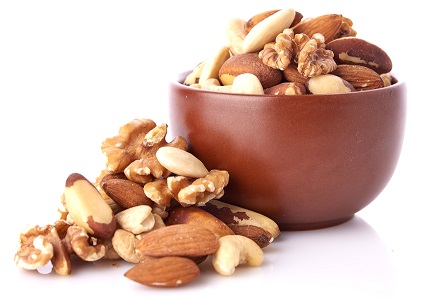
5 Ways to Boost your Child’s Immunity
Yes, it’s here already – the ‘back to school’ season. It’s time to buy new school uniforms, stock up on stationary and plan those packed lunches. Whether your little ones are flying the nest and heading to school, or it’s simply that time of the year again, the last thing you want is for them to be reaching the school gates with coughs and sneezes.
With over 58% of all cases of children missing school due to illness, according to the Department of Education, we have spoken with our experts for top tips on how we can boost our children’s immunity…
1. Boost immunity through their stomach
“Try to get your kids to eat a variety of vegetables and fruits. Doing so will give them exposure to the widest range of different vitamins, minerals and antioxidants, as well as ‘train their taste buds’ to appreciate healthy foods, and help boost their immune system. Children often like fruit and can be willing to try new types. However, veggies can be more of a challenge. Make sure you give their vegetables plenty of flavour, for example by roasting them in olive oil, or stir frying them with garlic and tamari (soya) sauce.
“Swap chocolate bars and sweets for immunity boosting snacks in your little one’s lunch box. Nuts and seeds are also fantastic sources of nutrients. They contain essential fatty acids that are vital for normal growth and development, calcium and magnesium for healthy bones and teeth, and zinc for the immune system. But avoid nuts that are roasted and covered in salt as these can do more harm than good: choose raw, unsalted ones. An excellent way to get your kids to eat more of them is to chop them up into small pieces and add to cereal, porridge or yoghurt (ideally a sugar-free, plain yoghurt!) with some fresh berries or other fruit,” explains Shona Wilkinson, nutritionist at SuperfoodUK.com the online shopping destination for all things health & wellbeing.
2. Throw away used tissues
“Try to make sure both you and your little one don’t leave dirty tissues or hankies lying around, as it can spread the cold. When you cough, sneeze or blow your nose the secretions that end up in your hanky or tissue are teeming with the virus that’s making you sick. These viruses can survive for some time once they leave your body, so when you leave a tissue for someone else to pick up you’re actually leaving a little virus bomb to go infect someone else’s hands. So try and teach your child to throw away any used tissues and wash their hands straight away,” explains Shona.
3. Get enough snoozing time
Poor sleep can affect the immune system so it’s crucial that your bundle of joy is getting enough shut-eye.  Magnesium is known as ‘nature’s tranquiliser’ and is needed to relax our muscles and nerves, so it’s important to make sure your children are getting enough magnesium to help them fall into a peaceful sleep. It has been scientifically proven that magnesium can help not only initially get to sleep, but to stay asleep as it can improve the hormonal and neurotransmitters balance in the brain.
Magnesium is known as ‘nature’s tranquiliser’ and is needed to relax our muscles and nerves, so it’s important to make sure your children are getting enough magnesium to help them fall into a peaceful sleep. It has been scientifically proven that magnesium can help not only initially get to sleep, but to stay asleep as it can improve the hormonal and neurotransmitters balance in the brain.
“To ensure your children are getting enough magnesium try and include plenty of magnesium-rich foods in their diet. Think: pumpkin and sunflower seeds, fish and leafy green vegetables. To help your children get their daily dose of magnesium I would recommend Natures Plus Animal Parade MagKidz, which provides a natural source of this essential nutrient, in a delicious cherry flavoured mix drink,” advises nutritionist Cassandra Barns.
4. Up the good bacteria
Probiotics help keep the gut healthy, which in turn assists the immune system in functioning correctly.
“Give your kids vital nutrients everyday before school to help keep the lurgy at bay. ProVen Probiotics Fit for School Stick Packs has been proven to half the days of illness. It gives them the vitamin C they try their best to avoid in fruit and veg. Most importantly for flu season, it provides billions of Lab4 friendly bacteria that help their immune system,” explains Adrienne Benjamin, nutritionist at Pro-Ven Probiotics.
5. Give your children the sunshine they need
“We rely on the action of the sun on our skin for our main source of vitamin D, so our levels can go down when the days get shorter  and darker. Even when outdoors with some skin exposed, very little vitamin D is produced due to the angle of the sun during these months. Most of us associate vitamin D with ensuring adequate absorption of calcium for our bones (which is one of its many important functions especially when our children are growing), but it also plays a crucial role in the normal functioning of the immune system,” explains Shona.
and darker. Even when outdoors with some skin exposed, very little vitamin D is produced due to the angle of the sun during these months. Most of us associate vitamin D with ensuring adequate absorption of calcium for our bones (which is one of its many important functions especially when our children are growing), but it also plays a crucial role in the normal functioning of the immune system,” explains Shona.
“The NHS recommends that children from the ages of six months to five years get 7-8.5 micrograms (mcg) of vitamin D per day. Make sure your children’s diet is full of salmon, eggs and cereal. To top up Vitamin D levels I would also recommend taking Natures Plus Animal Parade Vitamin D3,” explains Cassandra.